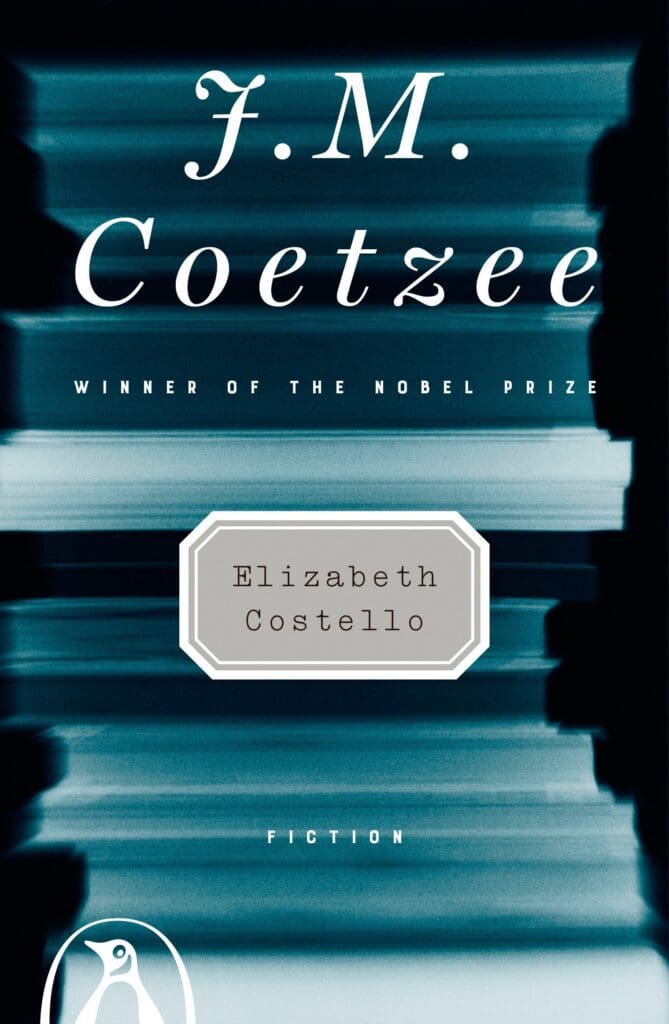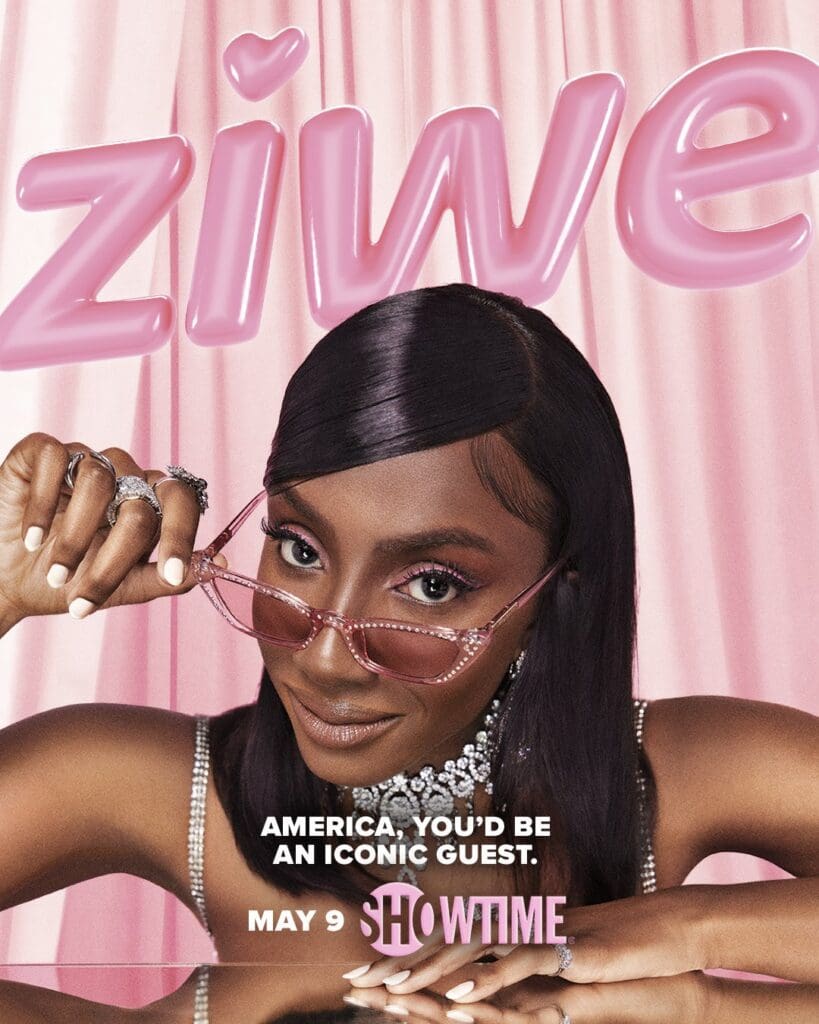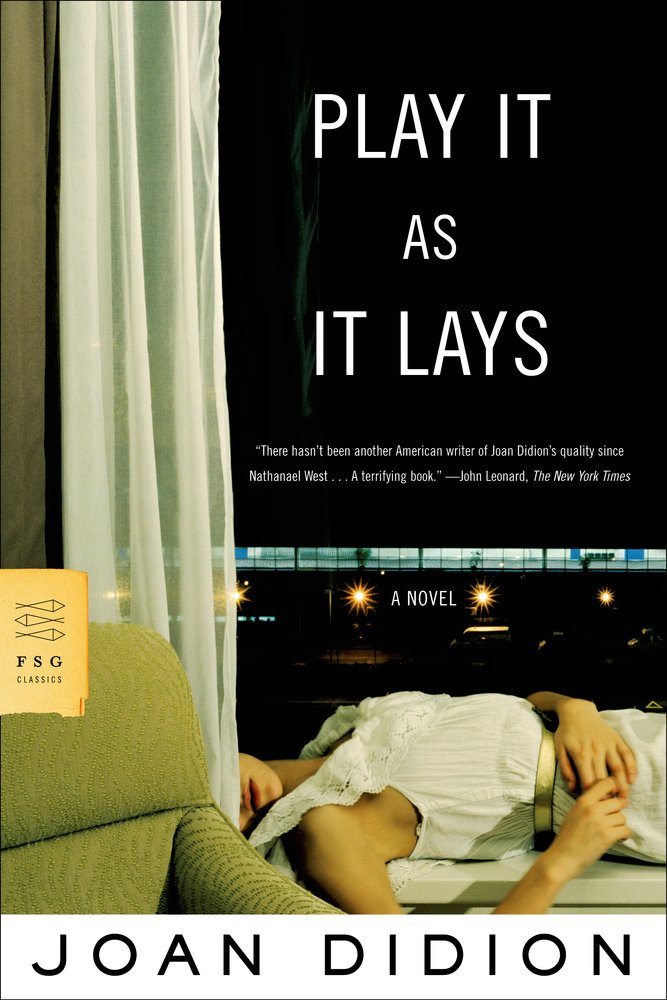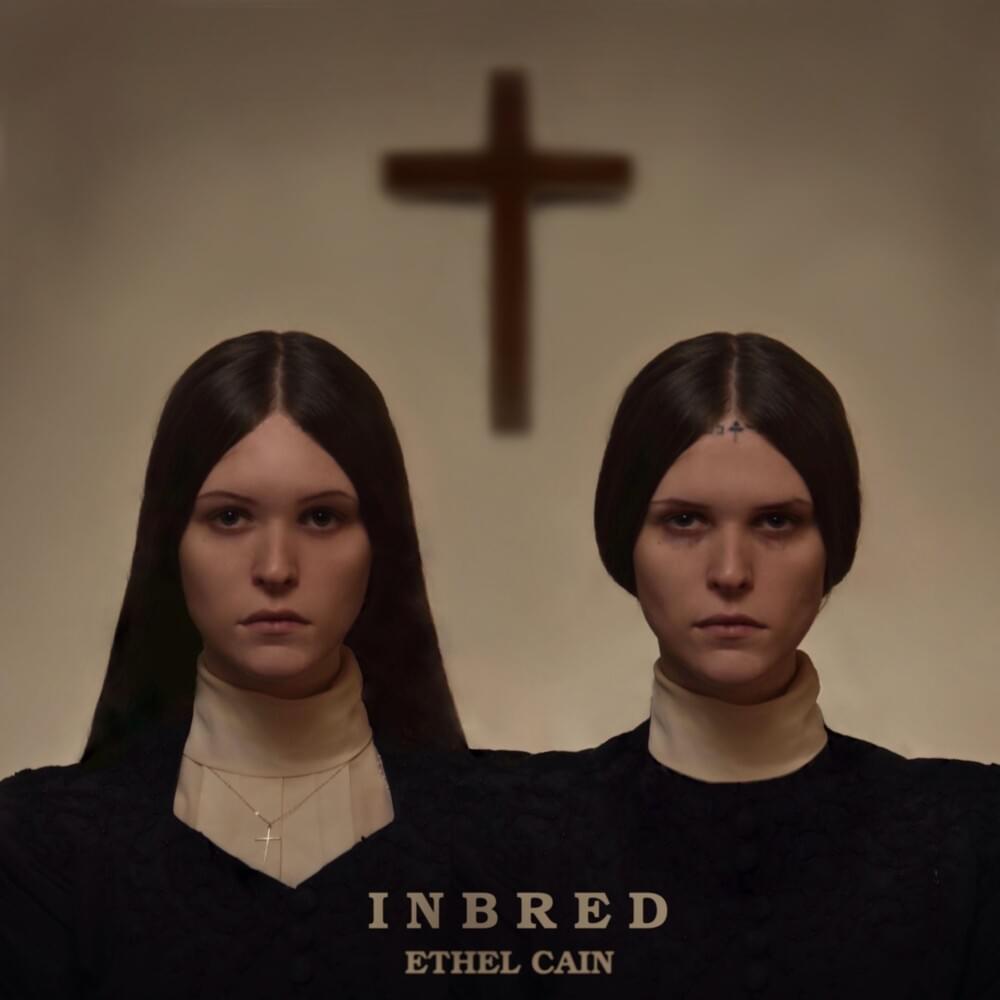
Lily Nilipour, Intern: One of the things I have most missed during this pandemic is, surprisingly, attending lectures. Before the advent of the Zoom classroom, I never realized how much I found the lecture hall a respite from the rest of daily life: the murmur of my classmates filing in and filling the rows of seats, the air conditioner blasting (or not on at all), the shuffling of notebook paper. And then, the lecture itself—for an hour or so, a singular voice carrying itself through the still air, accompanied by clicking keyboards and scratching pens.
This was not the reason I decided to pick up J.M. Coetzee’s 2003 novel Elizabeth Costello, but reading it has certainly revived some of my anticipation to return to the classroom. Coetzee’s first novel after his 1999 Booker Prize-winning novel Disgrace, Elizabeth Costello is divided into eight “lectures” either listened to or given by the eponymous character, an aging Australian novelist. Though we are not witnessing these lectures—not in the truly immersive way, like I described—what we have in Elizabeth Costello comes close. Coetzee faithfully sticks to the form of the monologue as his characters give talk after talk, only sometimes “skipping” over less pertinent parts of the script. These lectures circulate around difficult, often polemical topics, such as animal rights, the novel in Africa, and human evil.
Yet, if these lectures were just lectures, Coetzee wouldn’t take such pains to write them into a novel. There is something fundamentally uncomfortable about Costello’s theses, as well as her delivery of them. As we read, we begin to doubt whether Costello is, ultimately, right about what she is asserting to her audiences—and Coetzee skillfully narrates this doubt. Most of her talks are received with a tentative smattering of applause, and certain characters challenge her ideas directly, in Q&A sessions or formal post-talk dinners.
Reading Elizabeth Costello is much like taking an eight-week course (on what, is the question); with each successive lecture, Coetzee’s overall themes build out in complexity. This is a class we are eager to attend each week, for every chapter brings in a new and unexpected perspective on the questions of humanity and the study of the humanities. So, until we can return to in-person lectures, readings, and discussions, Elizabeth Costello will have to do.

Ray Levy Uyeda, Intern: Thursday evenings early in the pandemic were for watching white people try not to say racist things. Ziwe Fumudoh, a comedic visionary, TV writer, and now host of her own Showtime spot (appropriately called Ziwe), would invite the disgraced and aggrieved to share a conversation on Instagram live. The result: Caroline Calloway recommending books by Black authors she hadn’t read; Alison Roman describing the difference between curry and stew; and Rose McGowan pronouncing Ziwe’s name incorrectly less than a minute into the interview.
The Instagram live series was so popular, so brilliant, and so funny that Showtime contracted a series on its platform with the comedian, which you can now stream online. Here’s what you should know: Ziwe—the person and the show—is funny as hell. Each episode runs on a different theme: white women, beauty standards, and wealth hoarders, just to name the first three. In these episodes, Ziwe asks Fran Lebowitz what she hates more, “slow walkers or racism?,” receives a plastic surgery consultation in which a computer imaging tool “refines” her nose, and interviews New York City mayoral candidate Andrew Yang.
Ziwe stands opposite most other entertainment or media available right now. Not just because Ziwe is the only show that will talk about racist beauty standards that favor whiteness and fetishize light-skin mixed-race women, but because she calls such acute and unrelenting attention to the horrors of our world—and makes you laugh all the while. Andrew Yang struggled to remember the name to a single Jay-Z song and wouldn’t renounce apartheid, but Ziwe’s well-timed facial expressions and no BS attitude means that I’ll probably watch the interview over again on YouTube. (I’m sure you’ve seen clips on Twitter.)
Though funny, Ziwe has a knack for reminding us that what we’re all experiencing is pretty bleak: extreme wealth inequality, white women who prefer protecting whiteness over supporting Black lives, media that infantilizes girls and women for the sake of making a profit. Racism is baked into our lives and change is slow, so while we’re going through it, at least we can laugh.

Alana Baer, Intern: To say anything new about Didion is a difficult task, but to recommend Play It As It Lays, not so much. I have predictably read a good deal of Joan Didion’s nonfiction, this is the first of her novels for which I have indulged. The story takes place in the barren Nevada desert and dense Hollywood homes. Mostly, it is about Maria. Unwell and unlikable, Maria spends her days driving on a freeway towards nowhere in particular. Didion’s darts of observations create a non-setting—not determining a time and place so much as fabricating an aura, a feeling of “as it was.”
Maria’s experience of isolation and dislocation materializes in her Corvette and her cigarettes, her dark glasses and unkempt hair, in her underweight body wrapped in a silver vinyl dress. Maria suffers quietly, materially. Reality’s commitments narrow in on her, but she pays them no attention. She has no regard for appointments and paychecks, for dinner parties and small talk. Her attention remains fixated on the more real parts of life, the most vivid chunks of reality. Maria is attentive to her daughter Kate—and marks the birthday of what would have been her second child if she hadn’t decided to terminate the fetus.
Hence Maria marks the difference between paying attention and paying attention to the things that matter. I read these 216 pages last week and I found each one necessary. Published half a century ago, the novel describes with great precision a suffering that is at once immaterial and impenetrable, and a plight that does not know victimhood. To read Play It As It Lays is to be reminded that driving itself is a forward-moving act. Nearing the last line of the novel, Didion as Maria tells us: “I know what ‘nothing’ means, and keep on playing.” Often I drive nowhere towards nowhere in particular.

Zack Ravas, Editorial Assistant: The austere cover art and title of singer/songwriter Ethel Cain’s latest EP, Inbred, certainly create an…impression, an impression that the rest of the six-track release does little to dispel, and that’s perfectly alright with me. Cain’s brand of downbeat dream pop is the soundtrack to youthful anguish and sleepless nights—her soaring vocals and image-dense lyrics conjure a world of Southern Gothic. Growing up in Perry, Florida (population: 6,896), Cain felt at odds with her Conservative surroundings; after breaking out at age 18, she created the musical persona of Ethel Cain as an embodiment of the idea of “the unhappy wife of a corrupt preacher.”
Those concepts are explored in full on Inbred, an unapologetically dramatic suite of songs that romanticize doom-and-death, bolstered by Cain’s keen melodic sensibility. The opener “Michelle Pfeiffer” introduces us to the singer’s high-stakes world of backwoods roads, teenage runaways, and impending disaster. “I keep on losing track of time/Cause what’s the point if you’re not by my side,” sings guest artist Lil Aaron. “I told my mom about you, she just laughed/Driving with my eyes closed, hope I crash/Maybe we could be together in another life.”
The first three songs on Inbred are probably my favorite sequence of any record this year, culminating in the eight minute-long epic “God’s Country.” The song is a tribute to the moment when innocence is lost, as Cain blends dark religious imagery (“You drank the blood and bit the meat”) with a narrative about young lovers bracing against their small town fate (“Our kids will grow up with half as much/Trying to build something out of dust”). While the combination of serene vocals with tales of gothic tragedy bring to mind the work of Canadian artist Nicole Dollanganger, and certainly there’s something of Lana Del Rey’s influence lingering over Inbred, Ethel Cain is already charting her own course. This EP makes for ‘uneasy listening,’ to be sure, but there’s a force to these songs that demands the listener’s attention. When it comes to Cain’s stories of teenage drug pushers, preacher’s wives, and town pariahs, I’m all ears.
